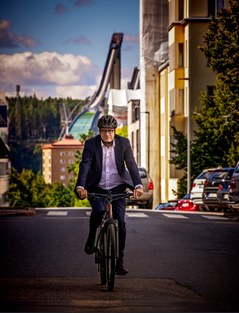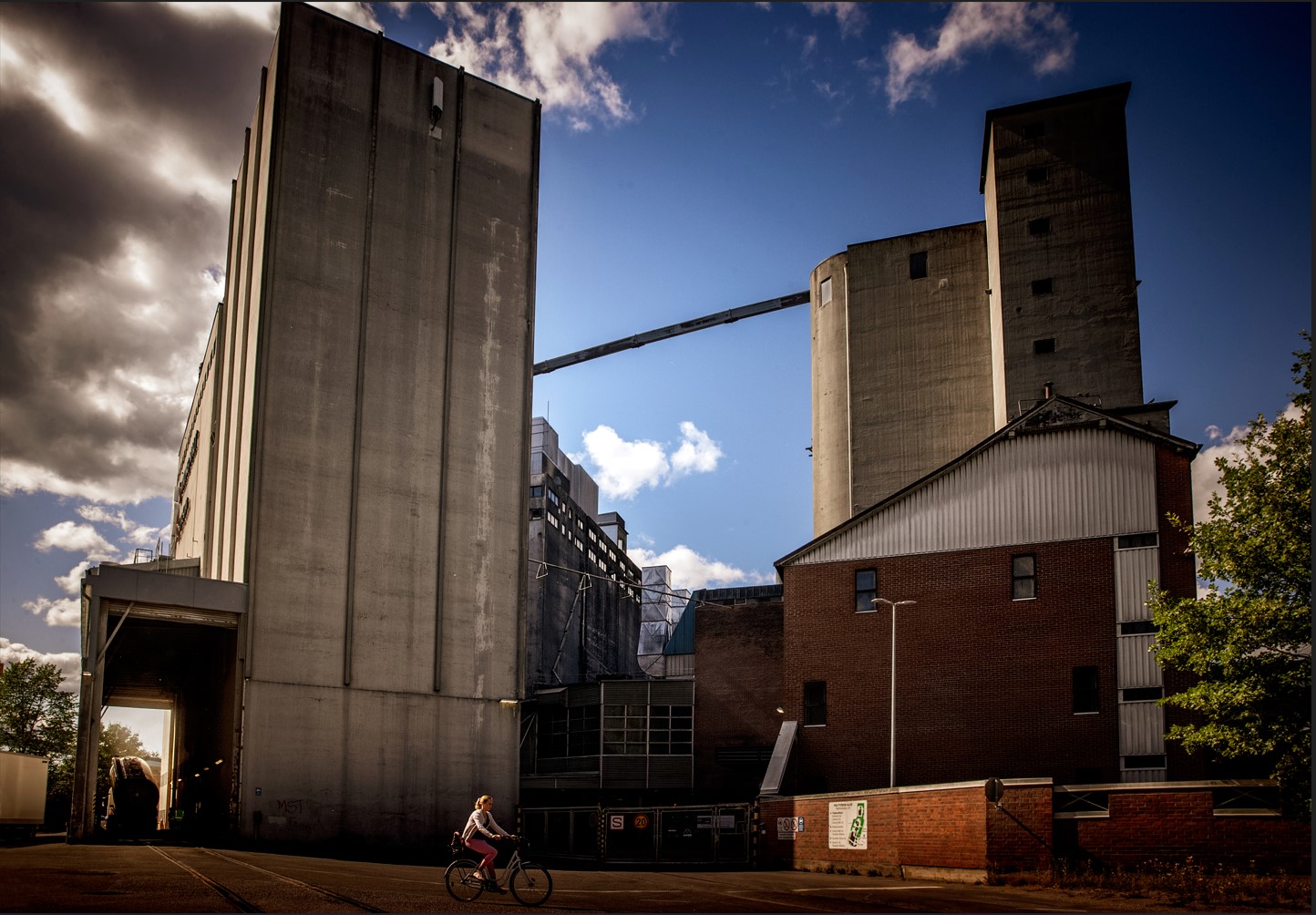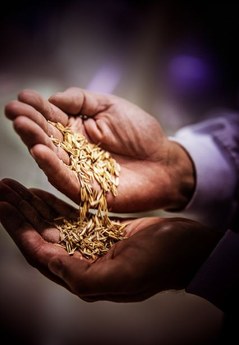Finnish EU Green Capital kept the transition going
Many cities are fighting for the honour of becoming the European Green Capital. In Lahti, which held the title in 2021, the environmental work and green projects continue apace.
A circular economy was one of the main themes, and this is still evident in many parts of the city. Procurement and events were made sustainable. The mayor switched his official car for an official bicycle.
 A series of beers called “Wasted Potential” was launched – based on nature’s own waste products. Even the city’s legislature embraced ecology and sustainability in what it preached and what it did.
A series of beers called “Wasted Potential” was launched – based on nature’s own waste products. Even the city’s legislature embraced ecology and sustainability in what it preached and what it did.
Environmental issues are also important for the Nordic’s largest malt producer, Viking Malt. It started the construction of a new factory in Lahti during the Green Capital year.
Lahti, in the Päijät-Häme region just over an hour’s drive north of Helsinki, is an industrial city that suffered severely from the early 1990 financial downturn. Eastward exports disappeared with the fall of the Soviet Union. What remained were environmental problems. The city’s lakes were polluted by factories and housing.
It pays to be clean
The city has been dependent on wood, furniture and metal industries. The areas surrounding Lahti are considered crucial to Finnish agriculture and grain production.
Today, cleantech is an increasingly important branch of the city’s business community. Lahti aims to be carbon neutral earlier than any other Finnish city. CNN recently named Lahti as one of the world’s most interesting tourist destinations.
Being European Green Capital comes with responsibilities. Stockholm, Oslo and Copenhagen have all held the title in the past, but Lahti was the smallest and northernmost green capital ever.
The city aimed to show other Finnish cities and the wider world how the green transition could be put into practice. It was done with cooperation from the university, companies and not least the citizens themselves.
Sustainable foodstuffs sector
Many circular economy success stories are to be found in the foodstuffs sector and the so-called grain cluster in the Lahti region.
Viking Malt is one such company. It malts grain and annually delivers some 600,000 tonnes of malt to breweries and distilleries in Northern Europe and the rest of the world.

Viking Malt produces malt in Finland, Sweden, Denmark, Poland and Lithuania. The company has an annual turnover of around €250m and employs some 240 people.
The Swedish agricultural cooperative Lantmännen owns 37.5% of the company and the rest is owned by the Finnish family business Polttimo, which started out as a distillery.
Big becomes bigger
Viking Malt is the biggest malt producer in the Baltic region. It is about to become bigger when a new malting house opens in 2023.
“Our supply is mainly based on local production,” explains sourcing manager Christian Tallskog at Viking Malt in Lahti. Most of the grain is grown locally and in Southern Finland.
 The most common grains are barley, wheat and rye. Viking Malt also produces various fava bean-based food ingredients.
The most common grains are barley, wheat and rye. Viking Malt also produces various fava bean-based food ingredients.
The new factory in Lahti is a strategic and significant investment of around €90m and is part of Viking Malt’s long-term plan.
“This is big for a company of our size, but it is also one of the largest investments in the whole of Lahti in recent years,” says Christian Tallskog.
The production capacity will be around 85,000 tonnes a year. The annual capacity of the current factory is 75,000 tonnes a year.
Went green, increased production
So their production will increase. Since this will be a new and innovative factory with new technology, the aim is also to increase efficiency and to become greener, points out Tallskog.
“Sustainability is important to us, it is part of our CSR agenda. We want to produce sustainably. We are a family business and our current owners are the fifth generation. We want to preserve the environment for future generations too."
Viking Malt aims to reduce the amount of energy it uses in order to cut the use of fossil fuels.
“In the longer term we also aim to reduce the amount of water we use,” says Christian Tallskog. This will happen without compromising the process, customers’ demand for quality or the quality of the crop. Last year, Viking Malt also stopped using coal as an energy source.
New types of grain, lower emissions
The company’s CSR reports detail how CO2 emissions can be cut by using new types of grain.
“We are constantly working on developing new types with greater yield and better growth properties. Higher yields generally mean lower CO2 emissions per produced tonne of grain,” says Christian Tallskog.
Viking Malt is also a partner in the regenerative farming online training championed by the Baltic Sea Action Group (BSAG) and Reaktor. The company believes it can influence the Baltic Sea environment through sustainable agriculture and has seen that both suppliers and Finnish farmers are engaging.
Foodstuff crisis after the war in Ukraine?
Right now, the crisis in Ukraine also has an impact on Viking Malt’s operations when it comes to procurement and sales.
“The war has been a great shock of course. Viking Malt has no employees in Russia. There are customers in both Ukraine and Russia but none are under any sanctions.”
At the moment, Viking Malt does not accept any new orders from Russia but respect their legal obligations, according to Christian Tallskog.
Because of the economic situation in Russia, there is not much which can be delivered in practical terms. This can affect the company's factory in Lahti.
In terms of procurement, Viking Malt is not directly hit. But the price of grain has risen a lot in all markets since the Black Sea area is responsible for a large part of the world’s grain production.
Even before the crisis in Ukraine, the global prices for grain, aluminium and energy were mounting. This is also being felt in Lahti.
Sustainability is important in turbulent times
“The price increases for grain and energy in particular has an impact on us, and we follow the market closely,” says Christian Tallskog.
Market analysis has been stepped up. Risk management becomes more important in order to navigate the now very turbulent environment.
Pär-Gustav Relander, part-owner and Chairman of the Board at the Viking Malt Group, underlines the importance of sustainability in everything the company does, as the world is changing and technology develops.
When the cornerstone was laid down for the new factory, he pointed out that the company is performing its own change while also being part of creating change in the wider world.
There have been several expansions and production changes in recent years. After the fall of the Soviet Union, the company set up shop in Estonia and Lithuania. It also has a malt house in Halmstad, Sweden.
- This is where the beer comes from
-
Viking Malt is the largest malt producer in the Nordics. Its products are used in beer brewing and distilleries around the world. The company has malt houses in Sweden, Denmark and Finland, as well as in Lithuania and Poland.
The Finnish beer comes from around 100,000 hectares of grain fields in Finland.
 Follow us on Facebook
Follow us on Facebook
